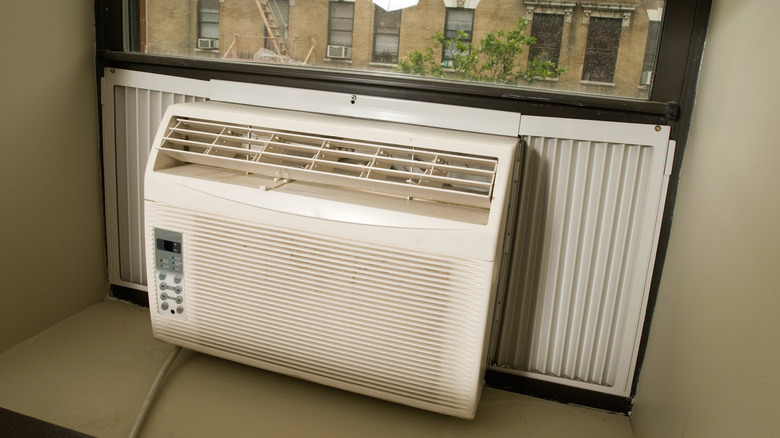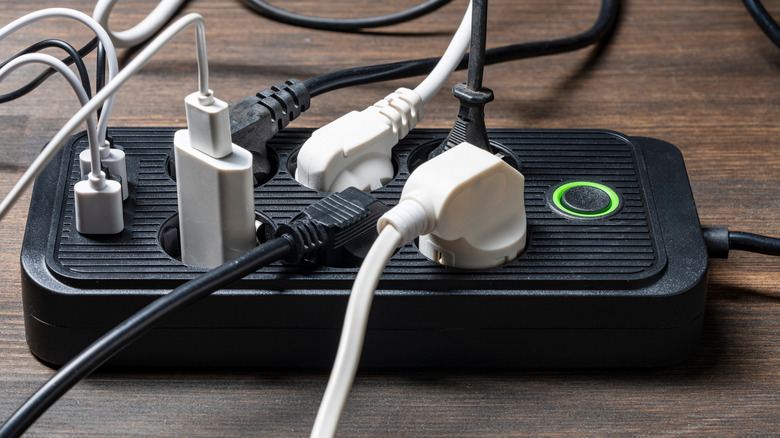Is It Safe To Plug An Air Conditioner Into A Power Strip Or Extension Cord?
We may receive a commission on purchases made from links.
As heatwaves continue to , staying indoors with an air conditioner becomes one of modern life's greatest blessings. However, that blessing might quickly turn into a nightmare if you decide to plug your air conditioner into the wrong power outlet. There are many reasons why you might be tempted to connect your air conditioner to an available power strip or extension cord, but this is something you should reconsider, as it can be incredibly .
No matter the air conditioner brand you have, a common unit can consume the equivalent of operating at the same time every single hour. That's a . Unfortunately, most power strips and extension cords . In a best-case scenario, t. That scenario, however, becomes much worse with an , overheated cord. The fluctuation of will not only damage your AC unit, but also cause the cord to ignite, leading to an electrical fire.
Using the right power strip or extension cord for your air conditioner
With a maximum capacity of , most standard power strips are designed to handle multiple at the same time, like phone chargers and lamps. units, however, don't fall under that category. That's why it's best to pick a spot in your home to install an AC unit where there's an . When that isn't possible, there are a number of things to consider to ensure the safety of your air conditioner and protect yourself and your family against fire hazards.
The first thing you need to know is that if you have to use a power strip or extension cord, it must be a cord rated for the specific power your air conditioning unit needs. For example, an extension cord that is rated can only be used with an AC unit that requires less power than that. The cord also has to be and clearly labeled as safe for air conditioners. Another thing to keep in mind is that, even if you're good at math and can calculate the total power draw, you should always avoid plugging other devices into the power strip or extension cord , as it can easily overload your circuit. To protect your air conditioner from fluctuation in electrical currents, you can use a installed at the main panel, or an AC-rated smart surge protector. You should also follow the the specific brand you choose to buy.

